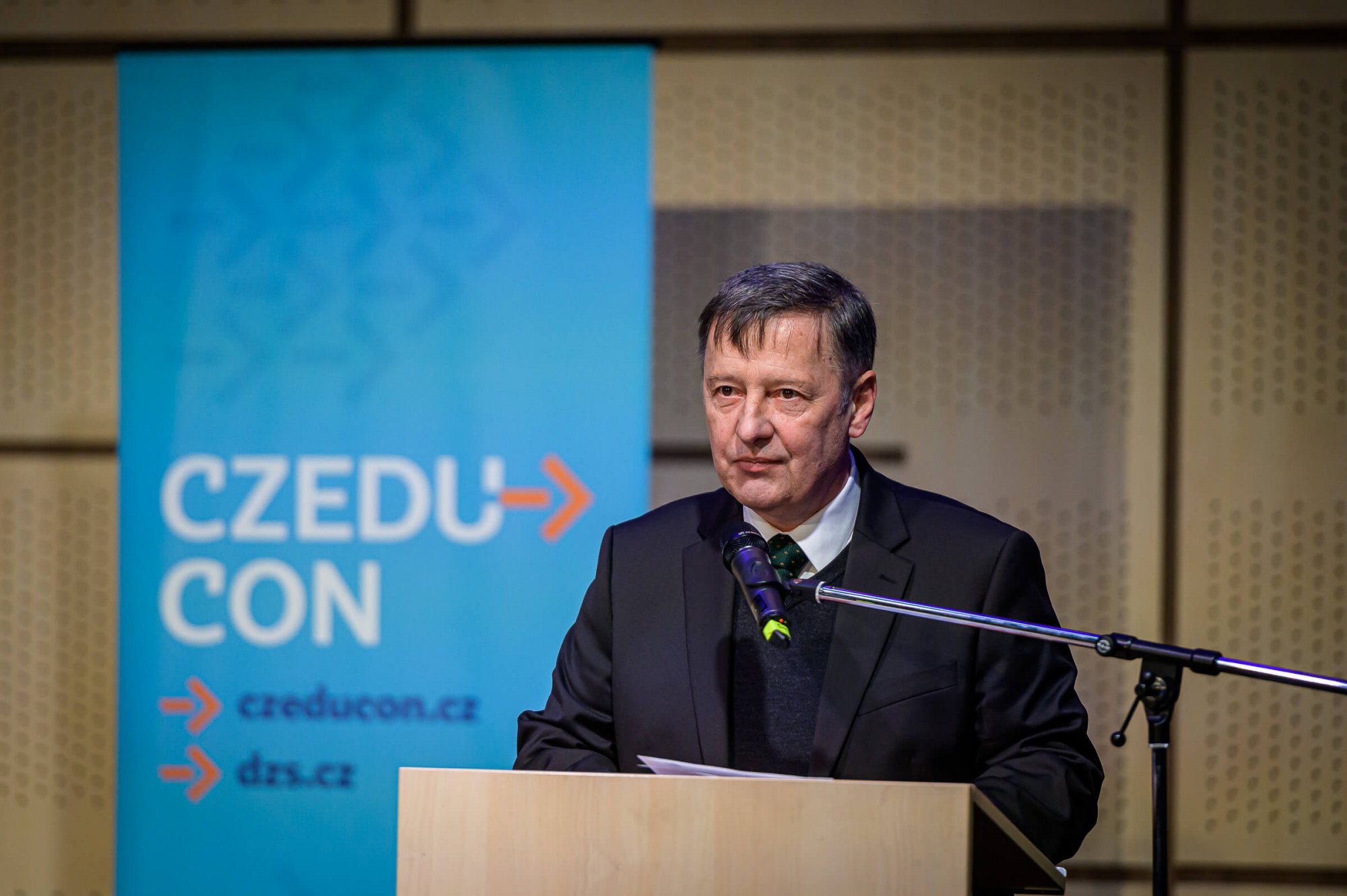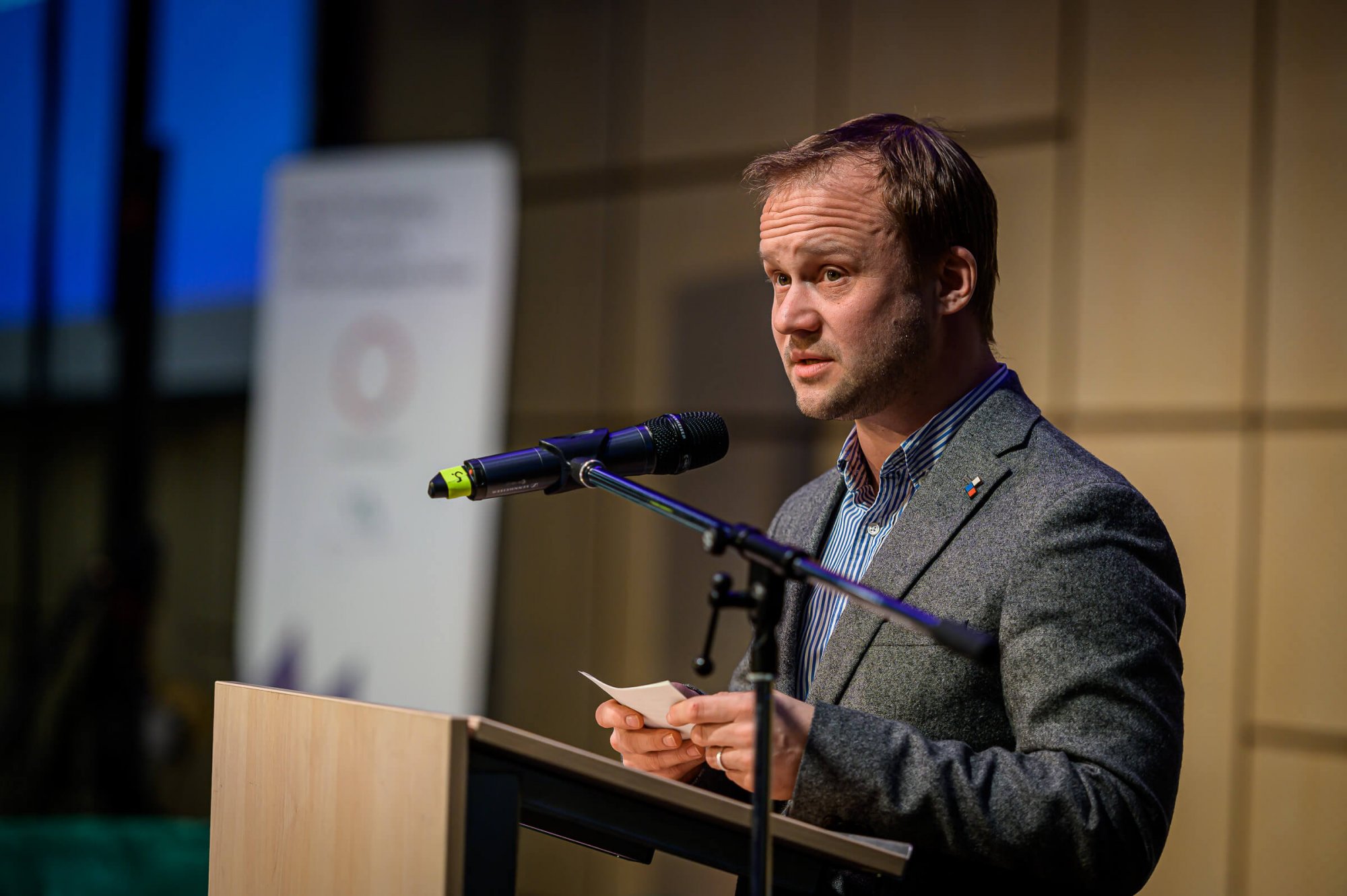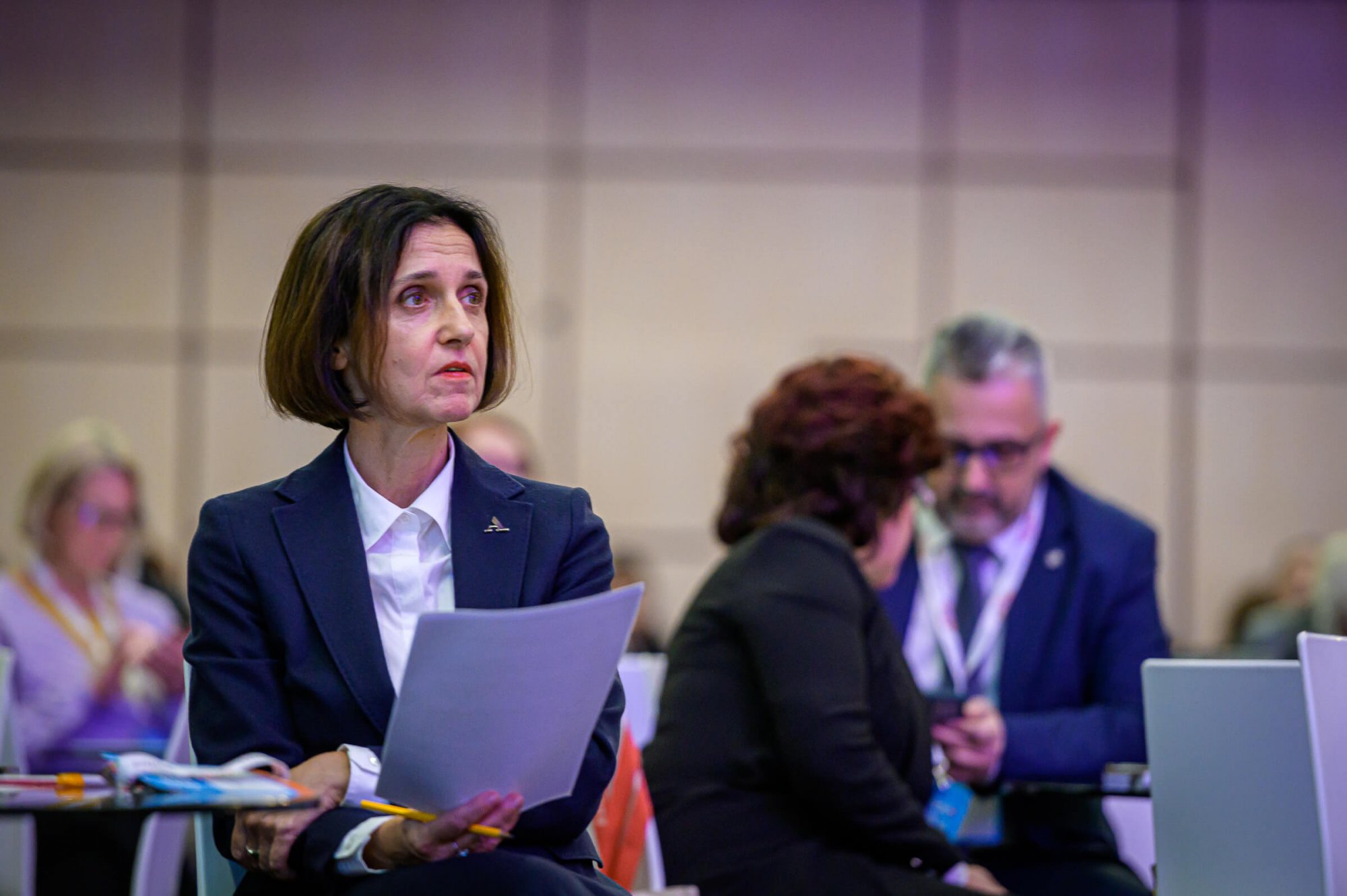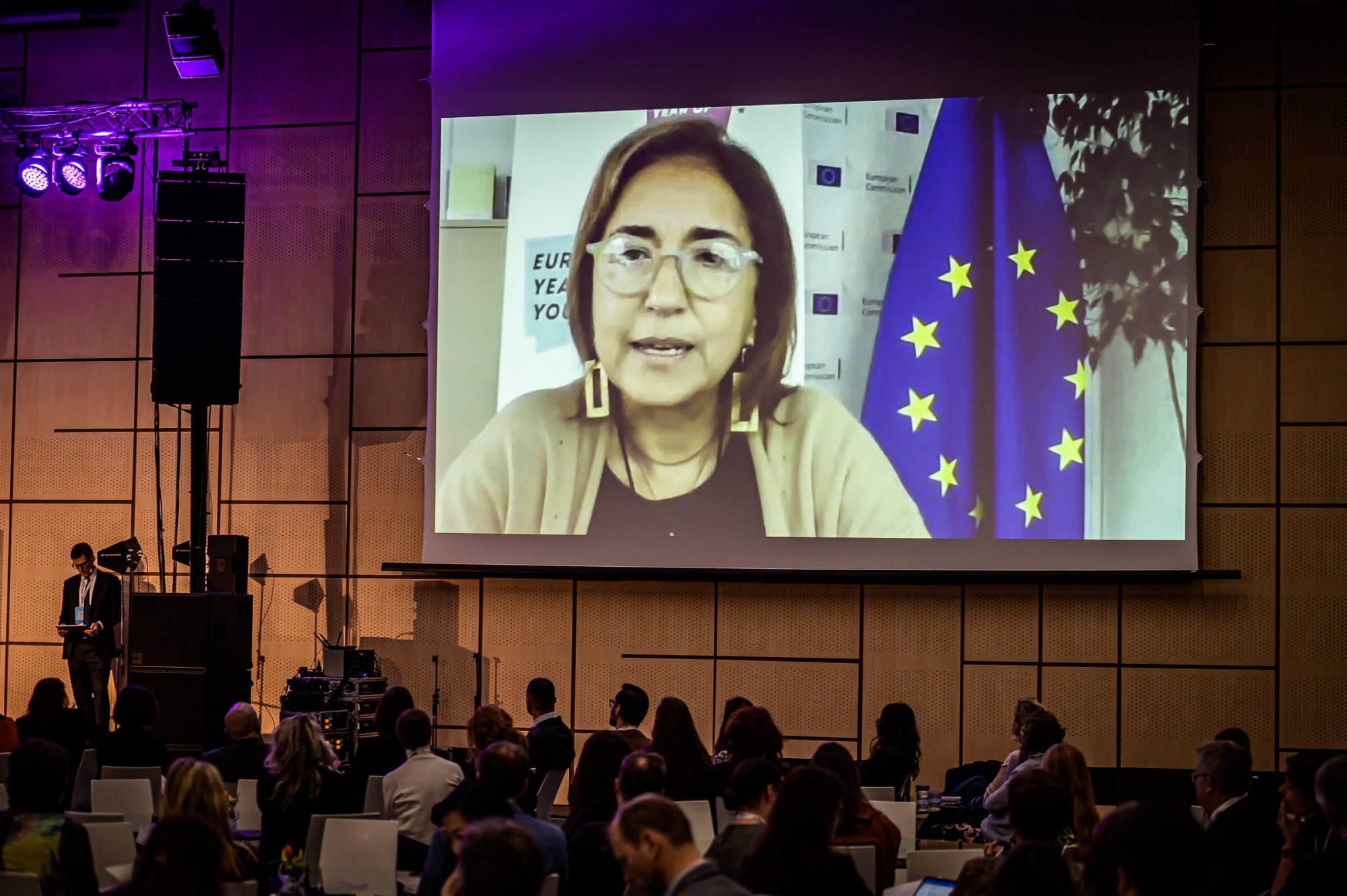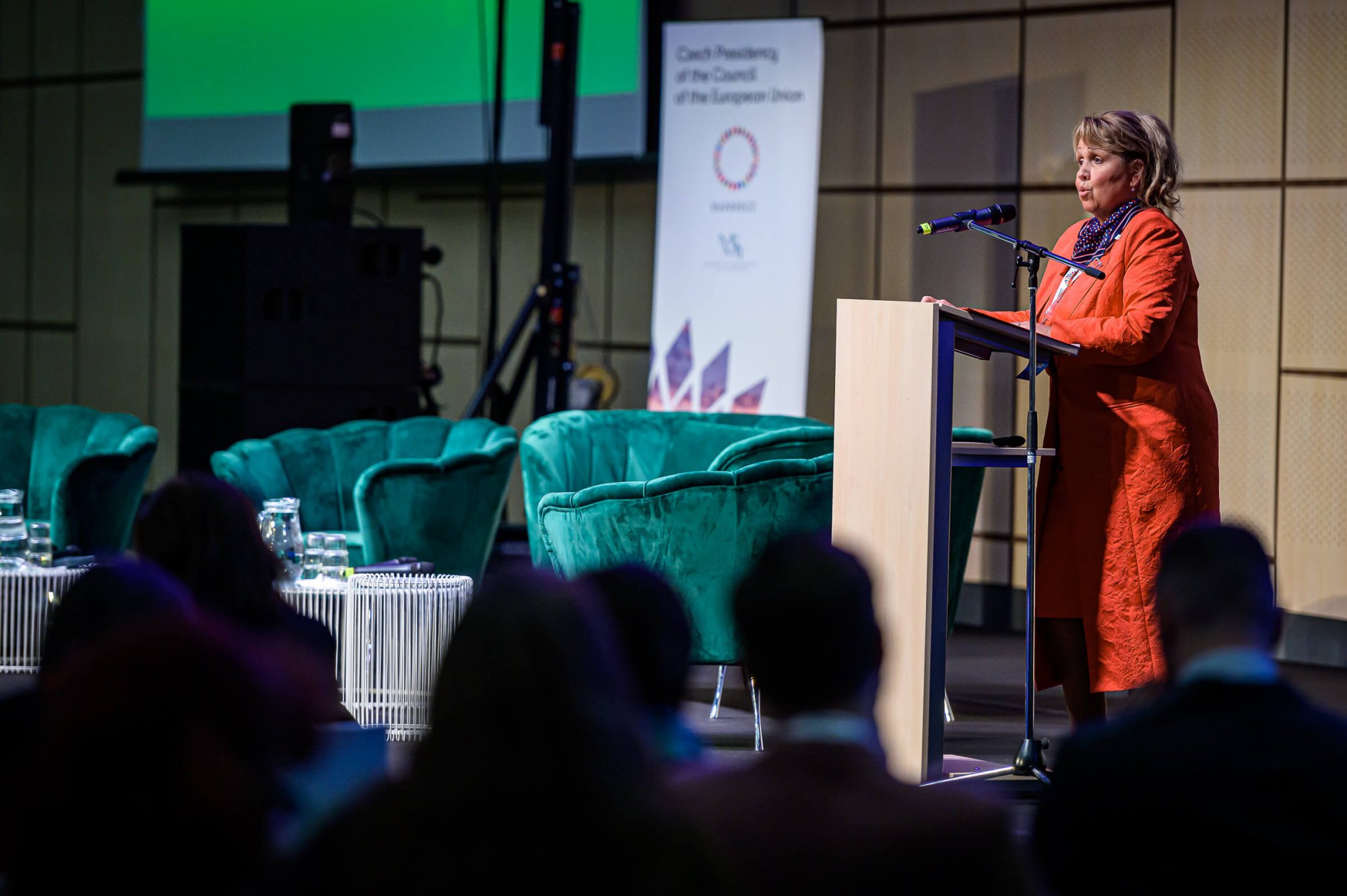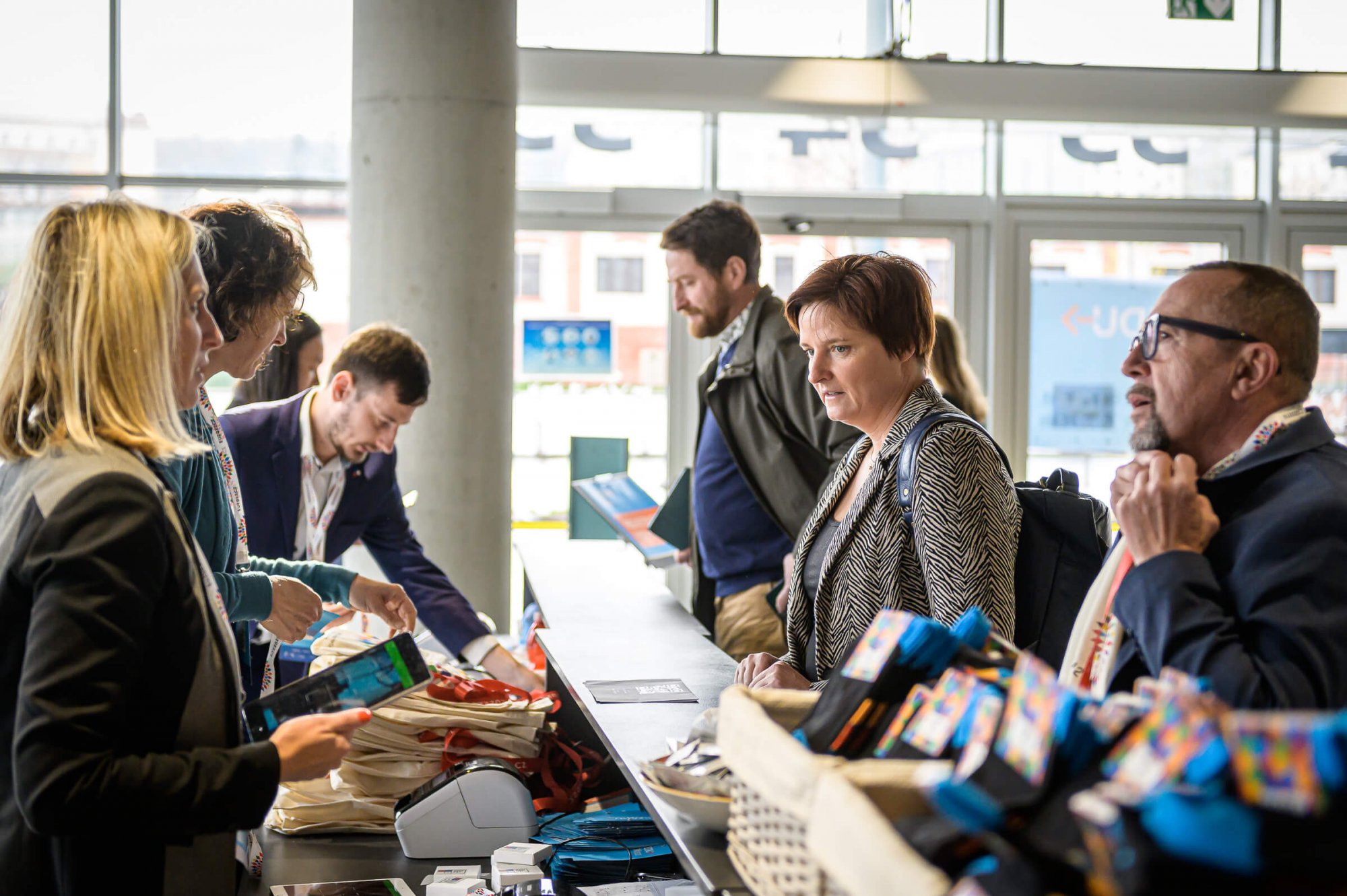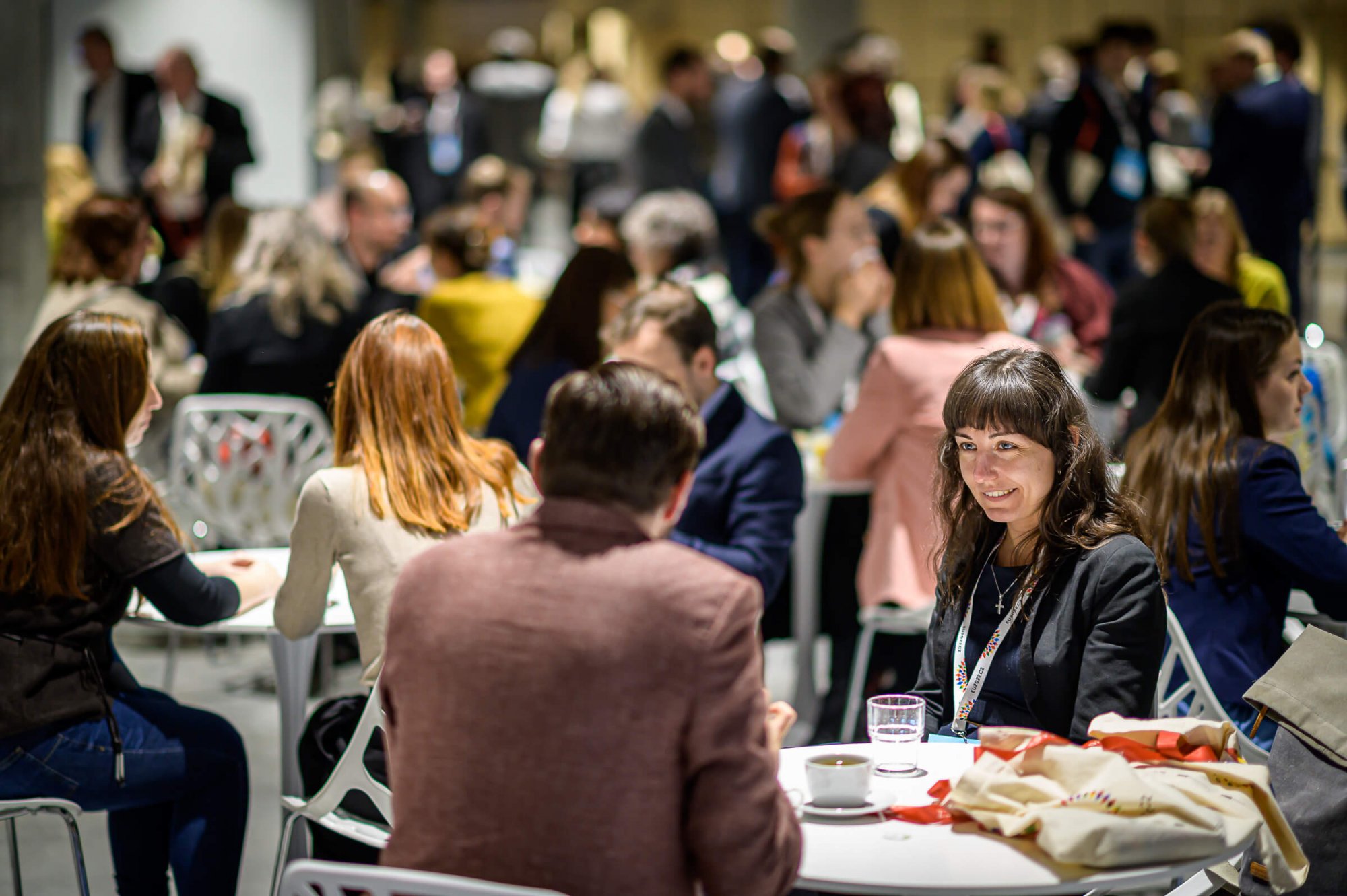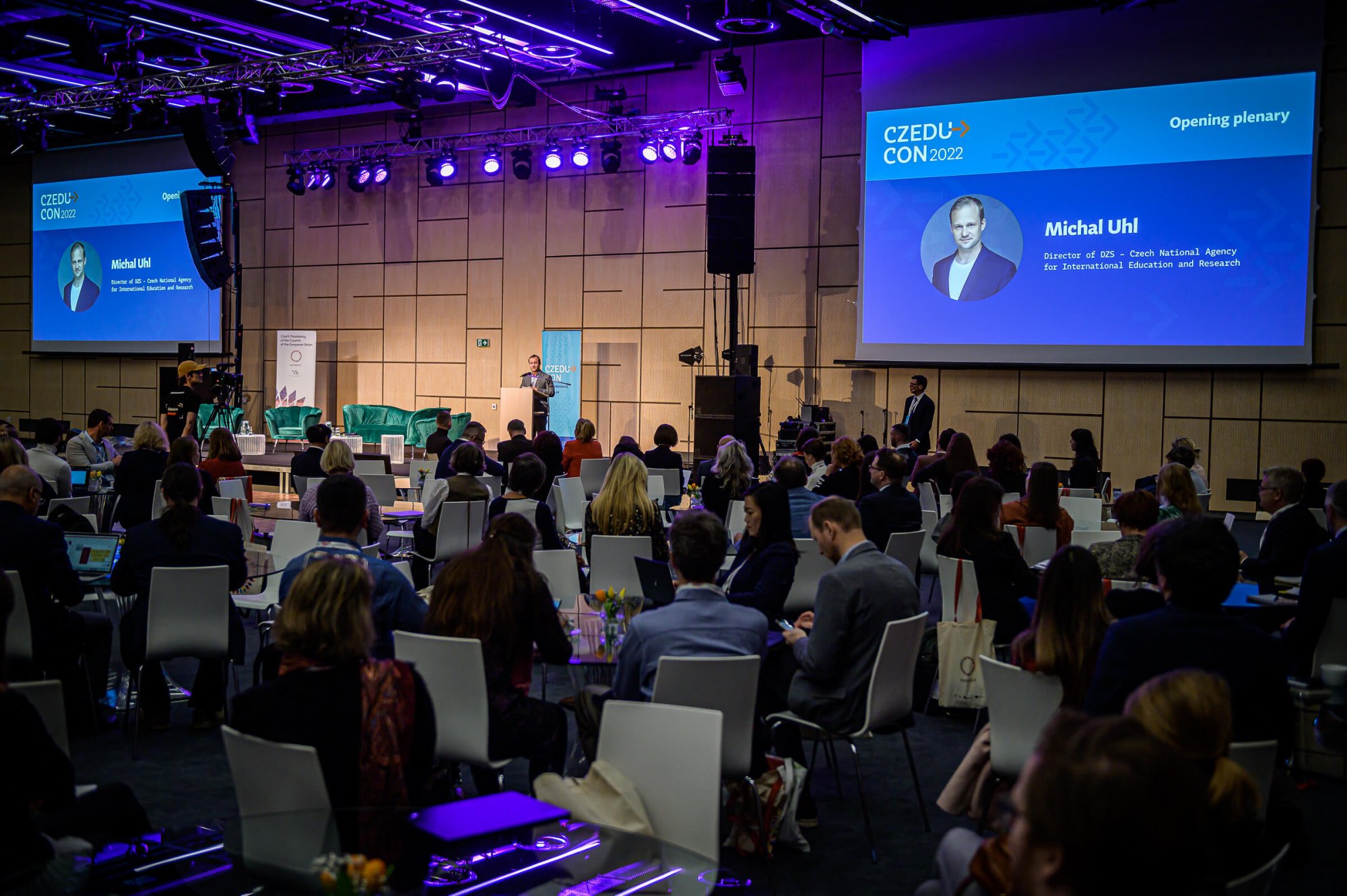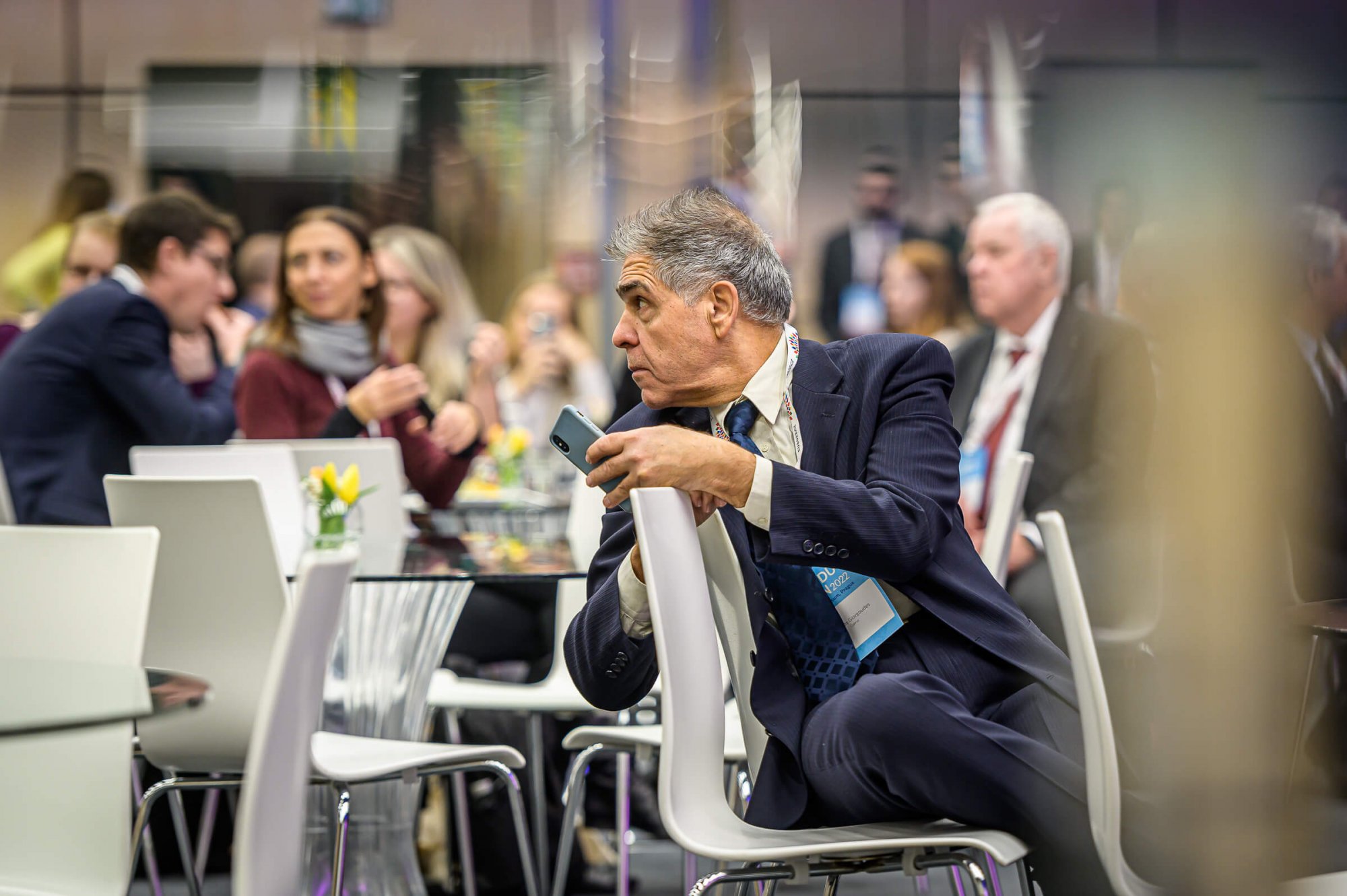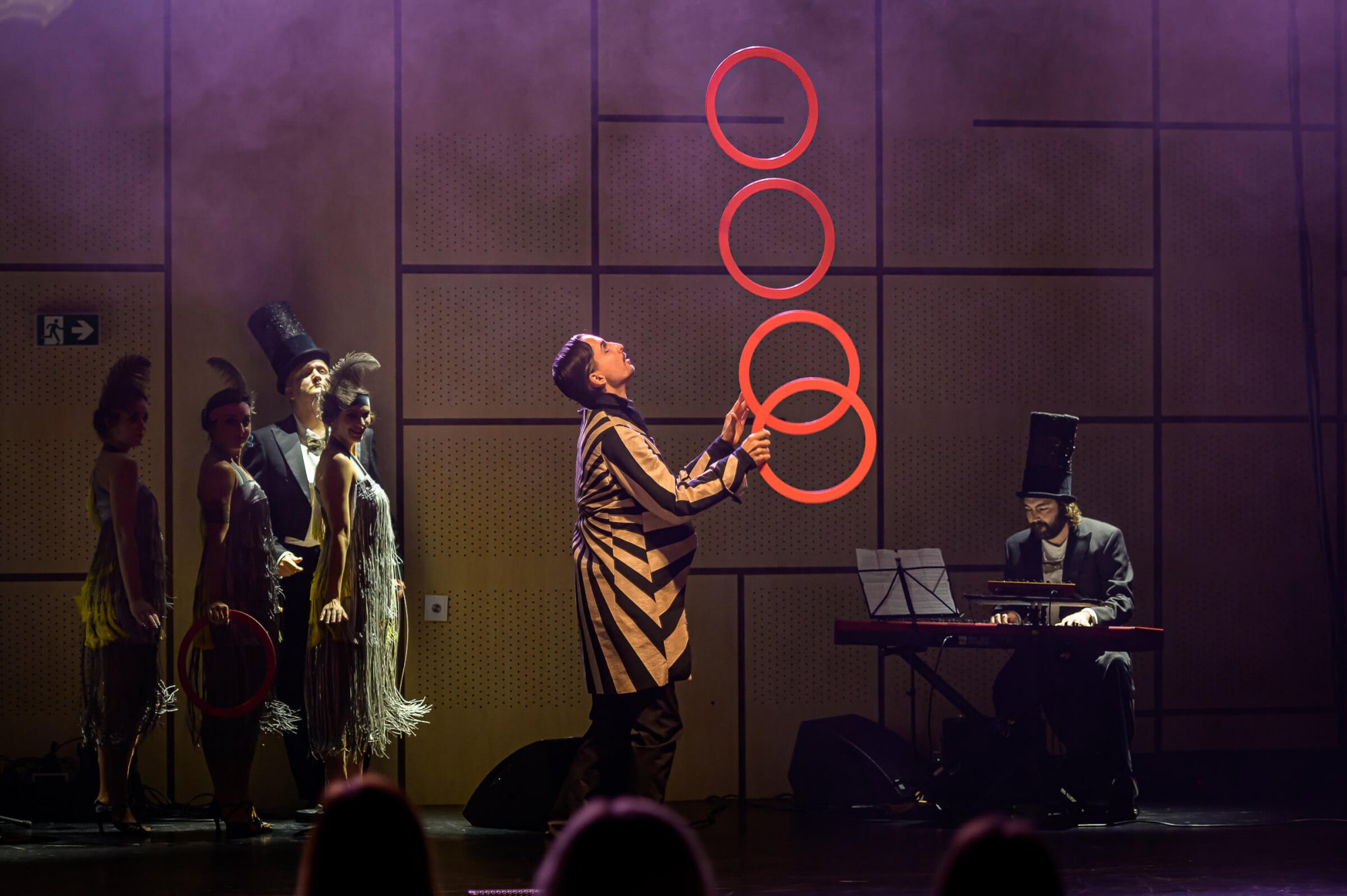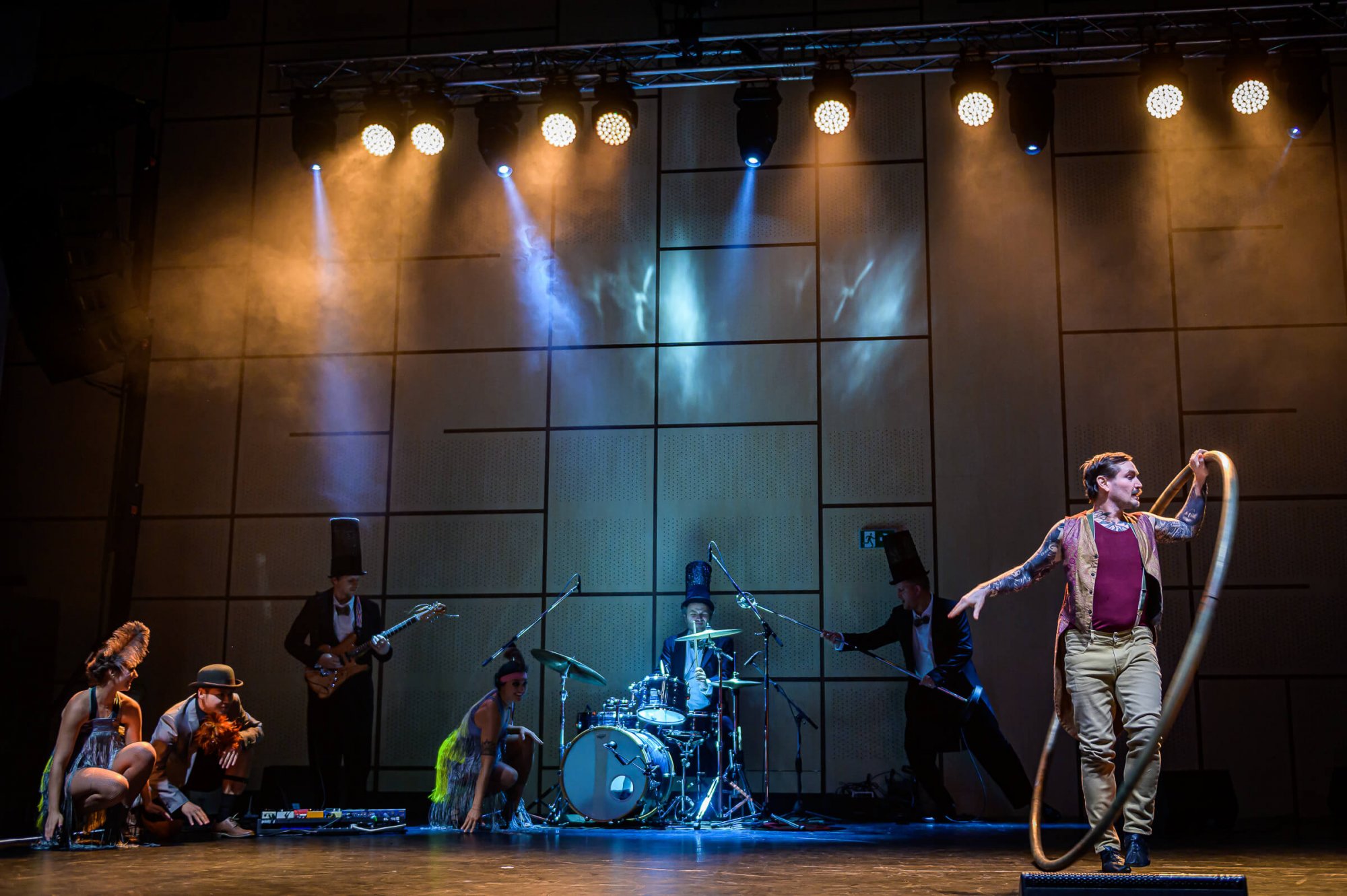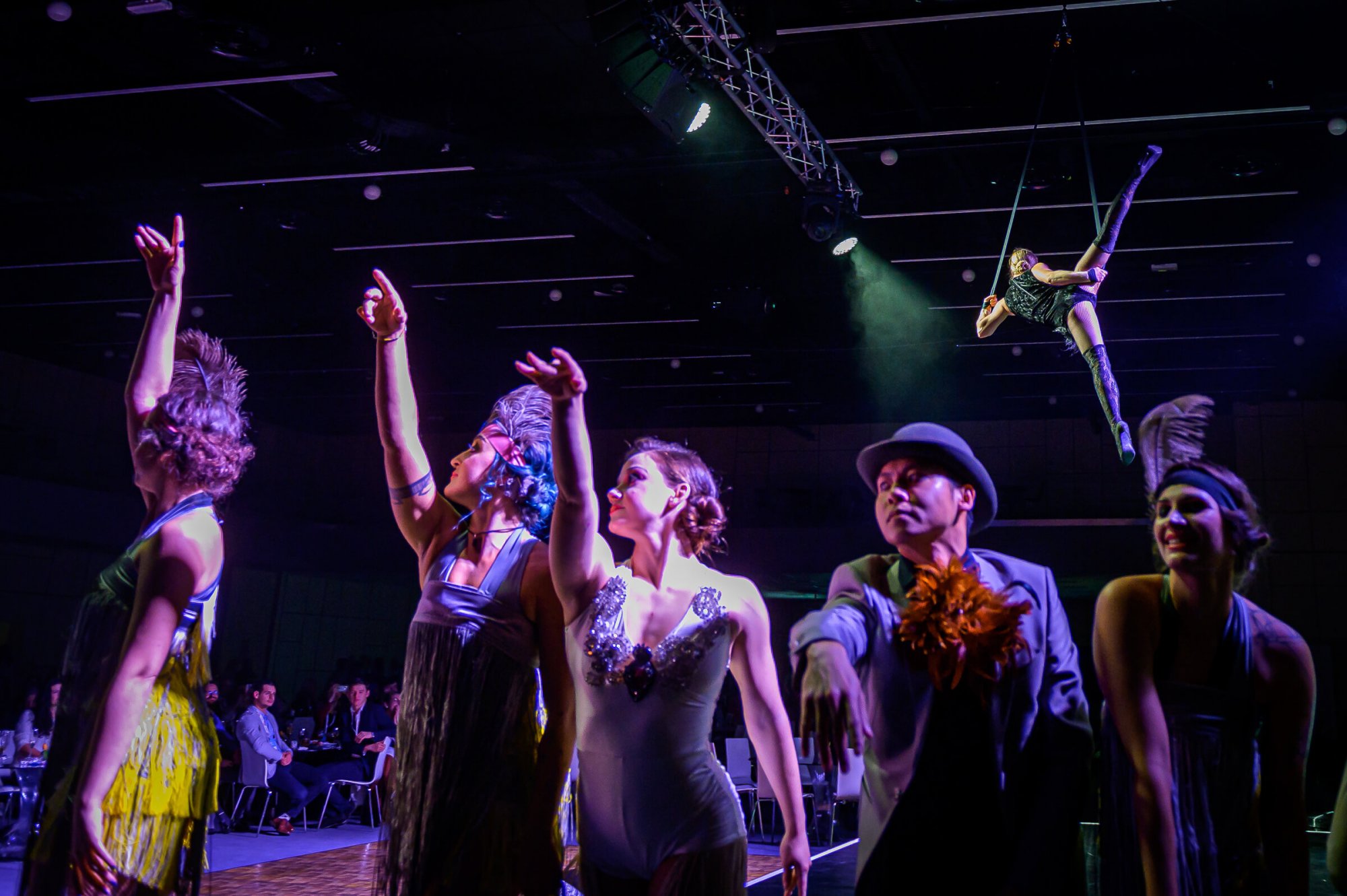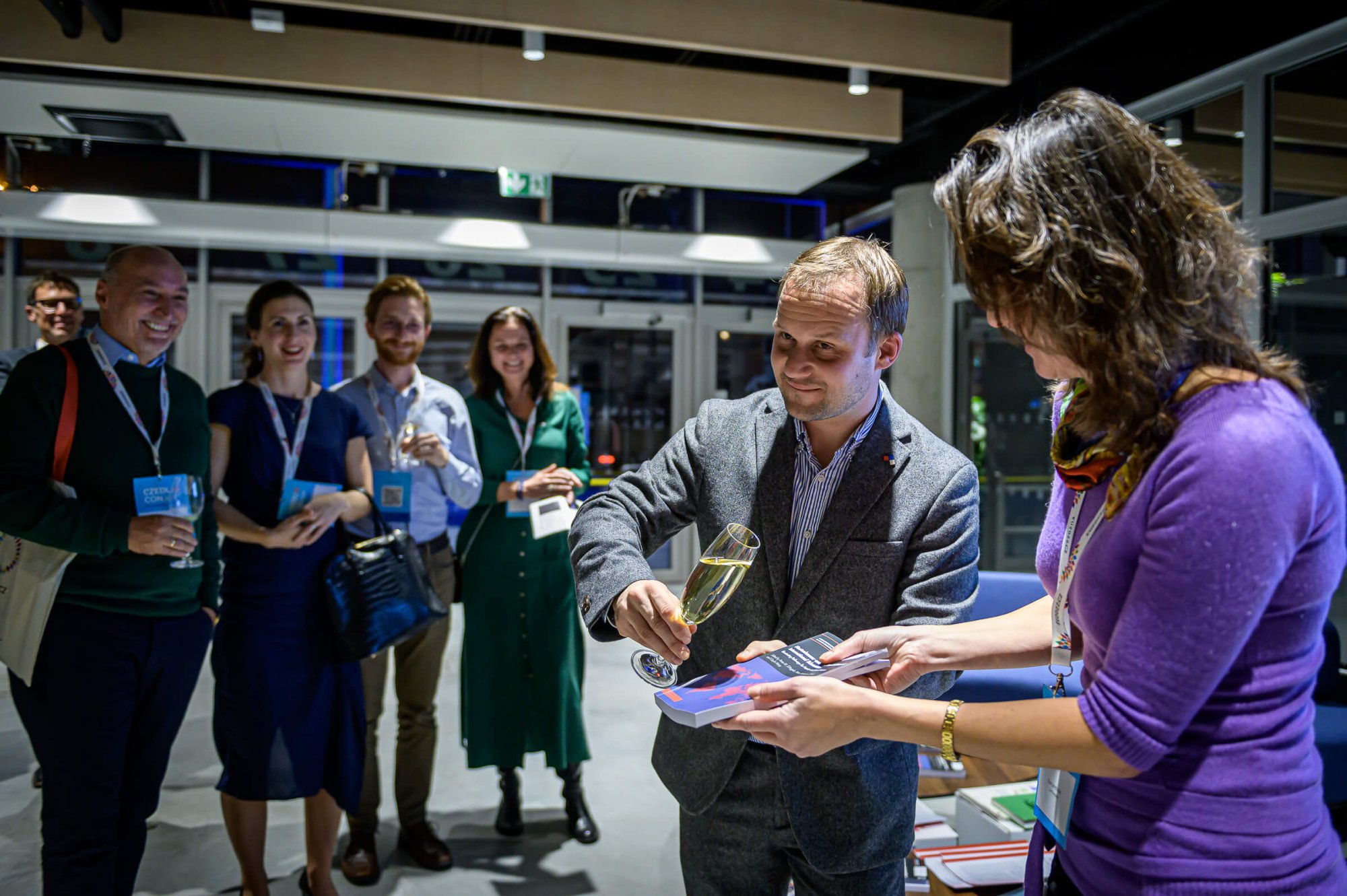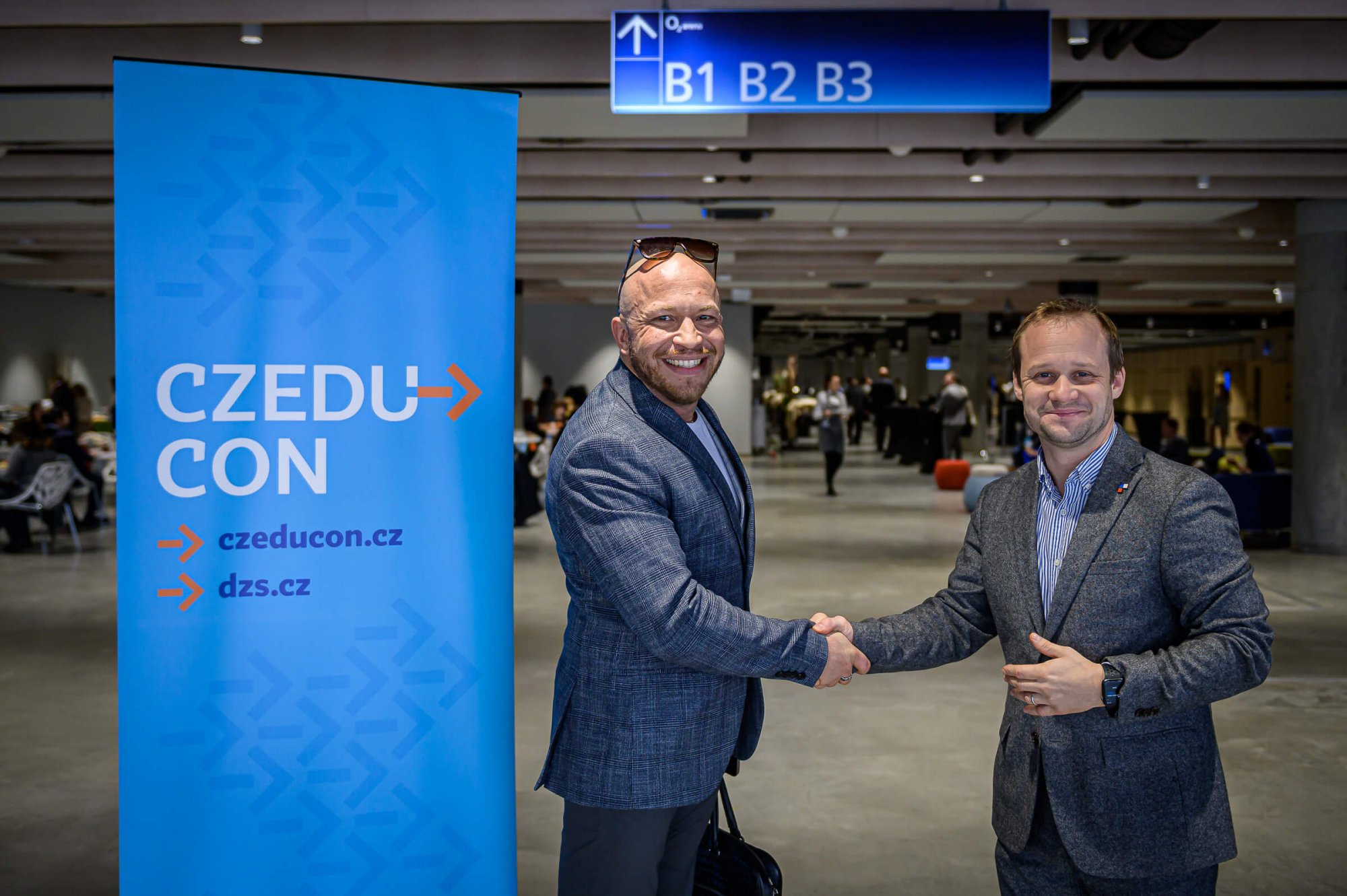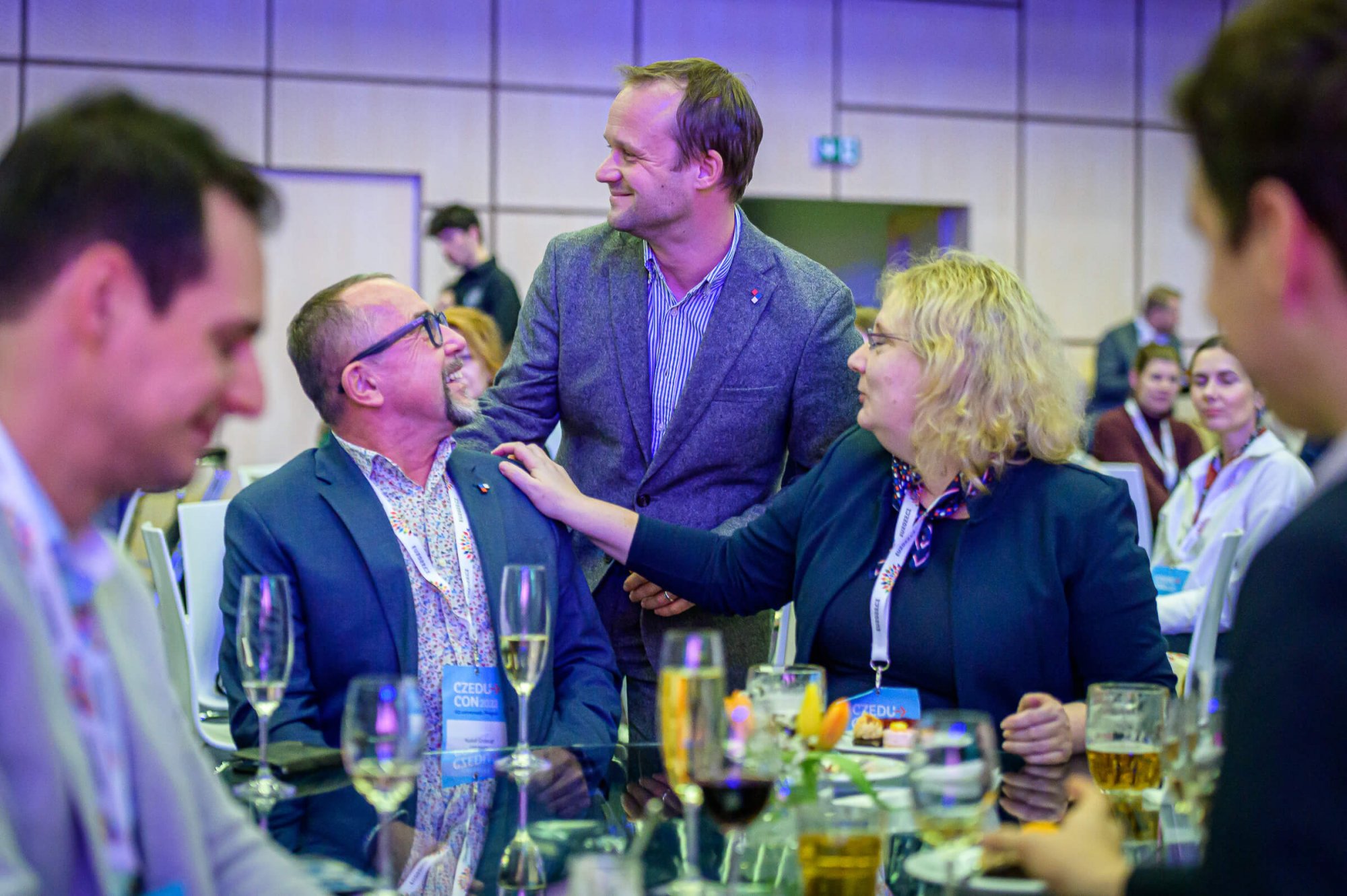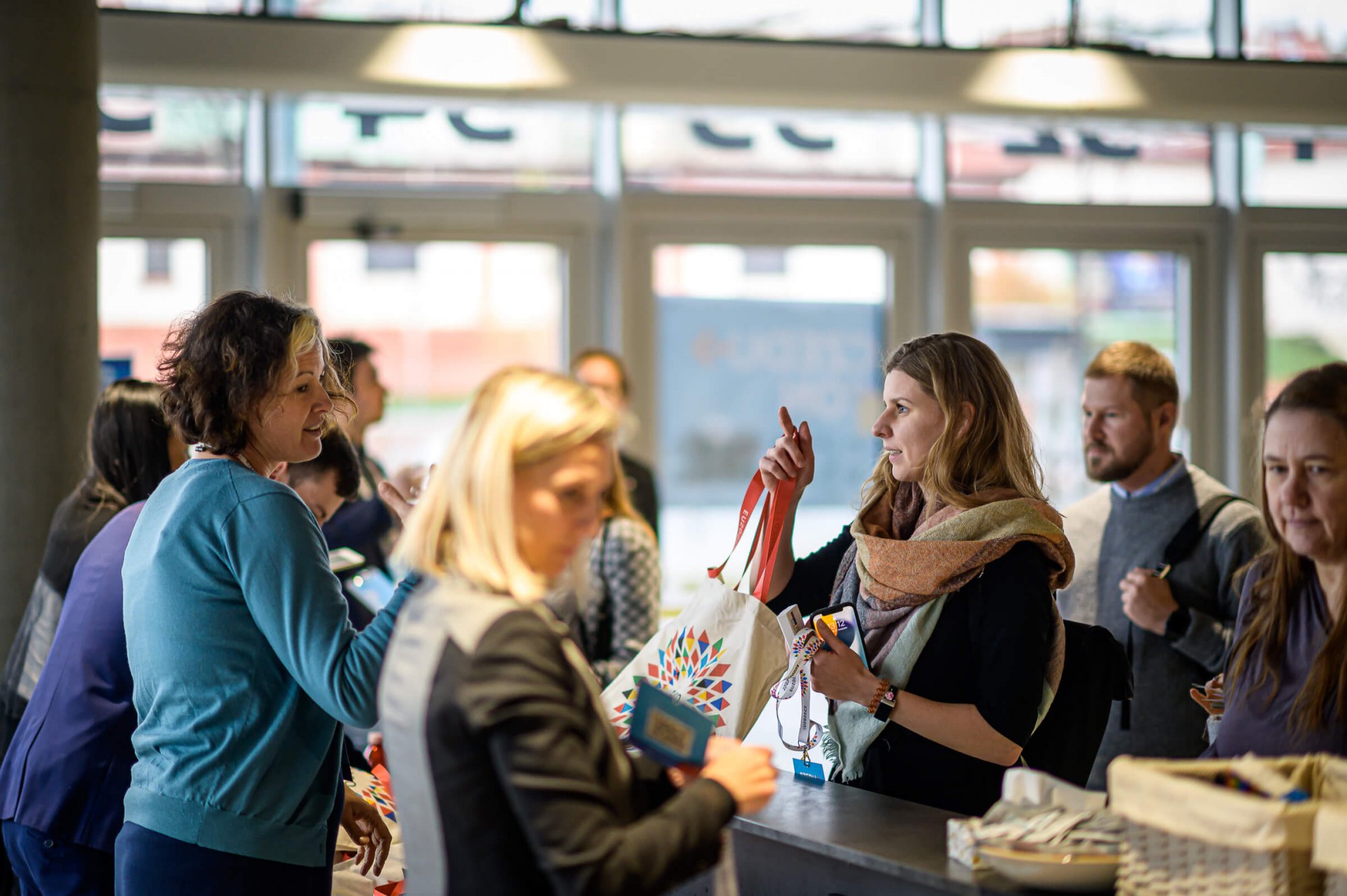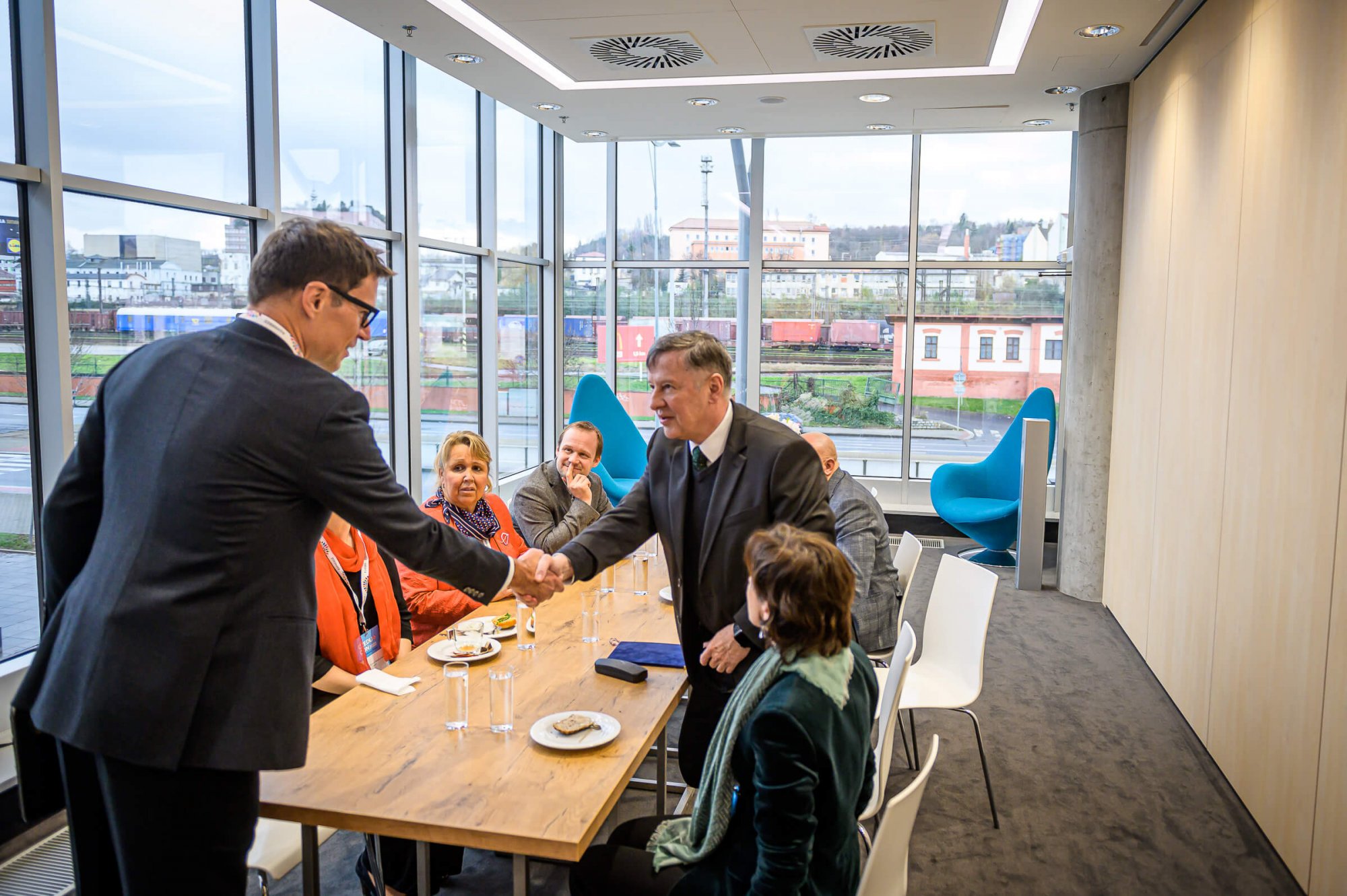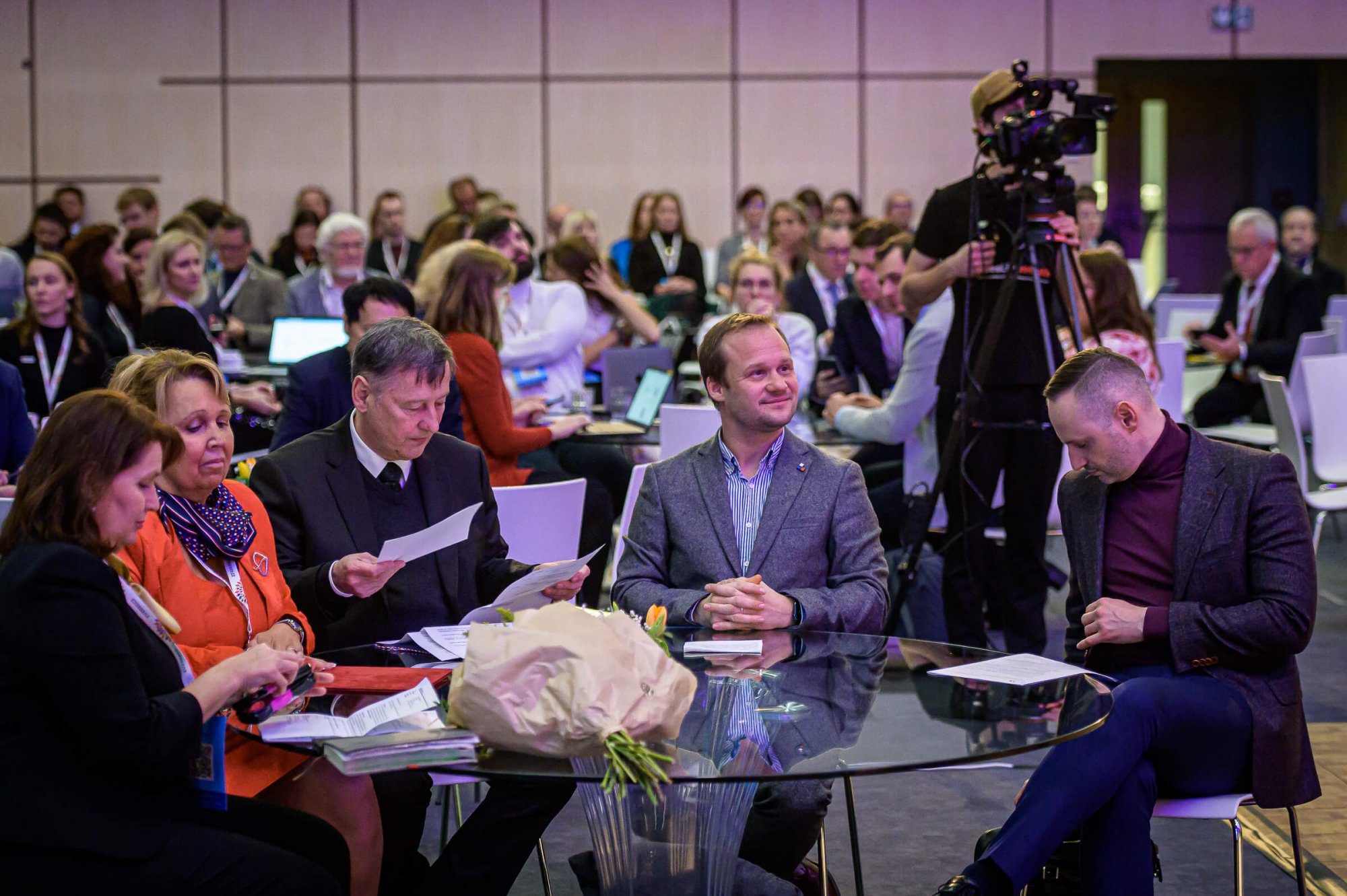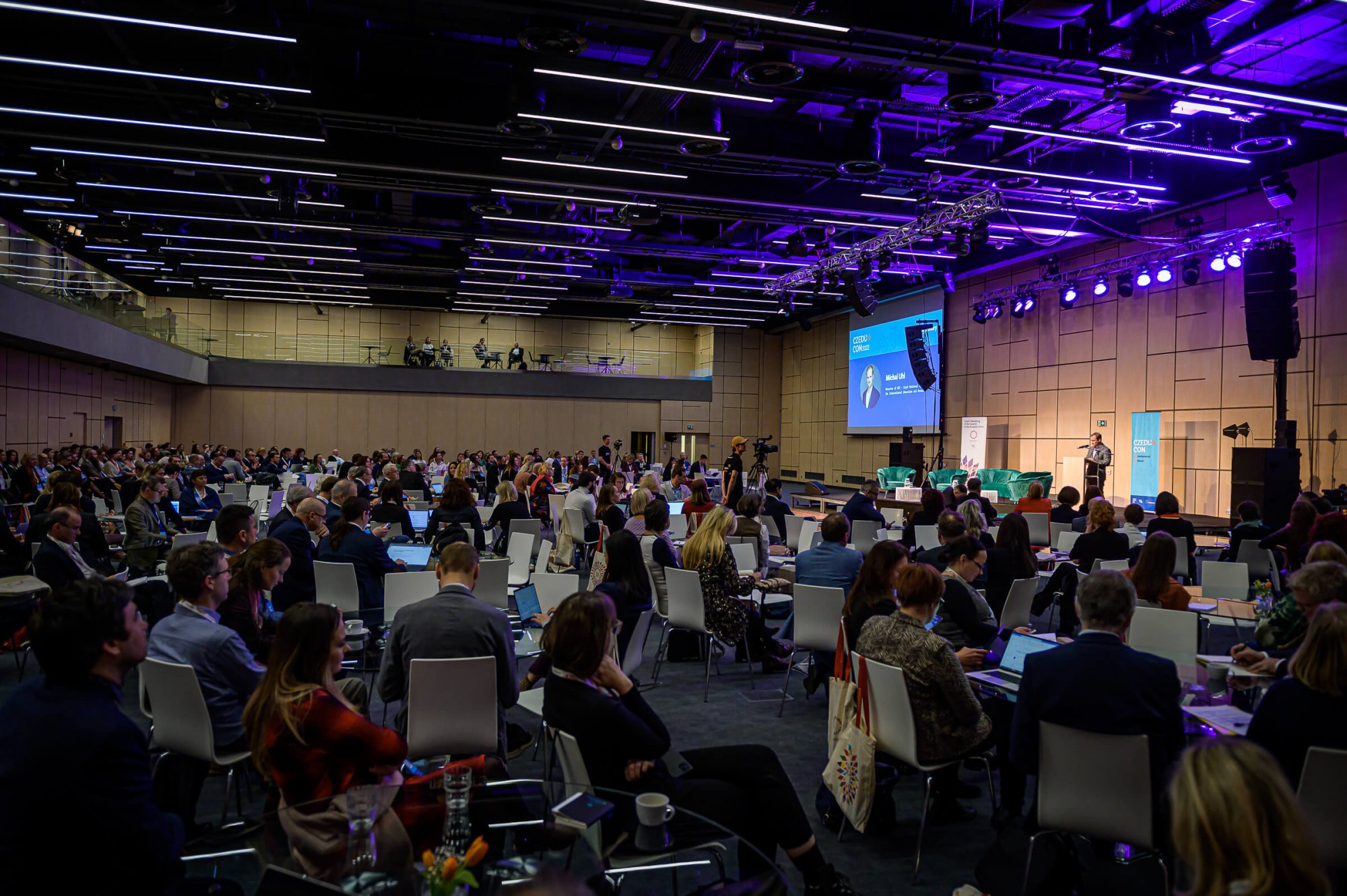New Challenges in International Higher Education. What Did the 4th Annual CZEDUCON Conference Reveal?
The two-day conference CZEDUCON in Prague welcomed international experts in higher education.
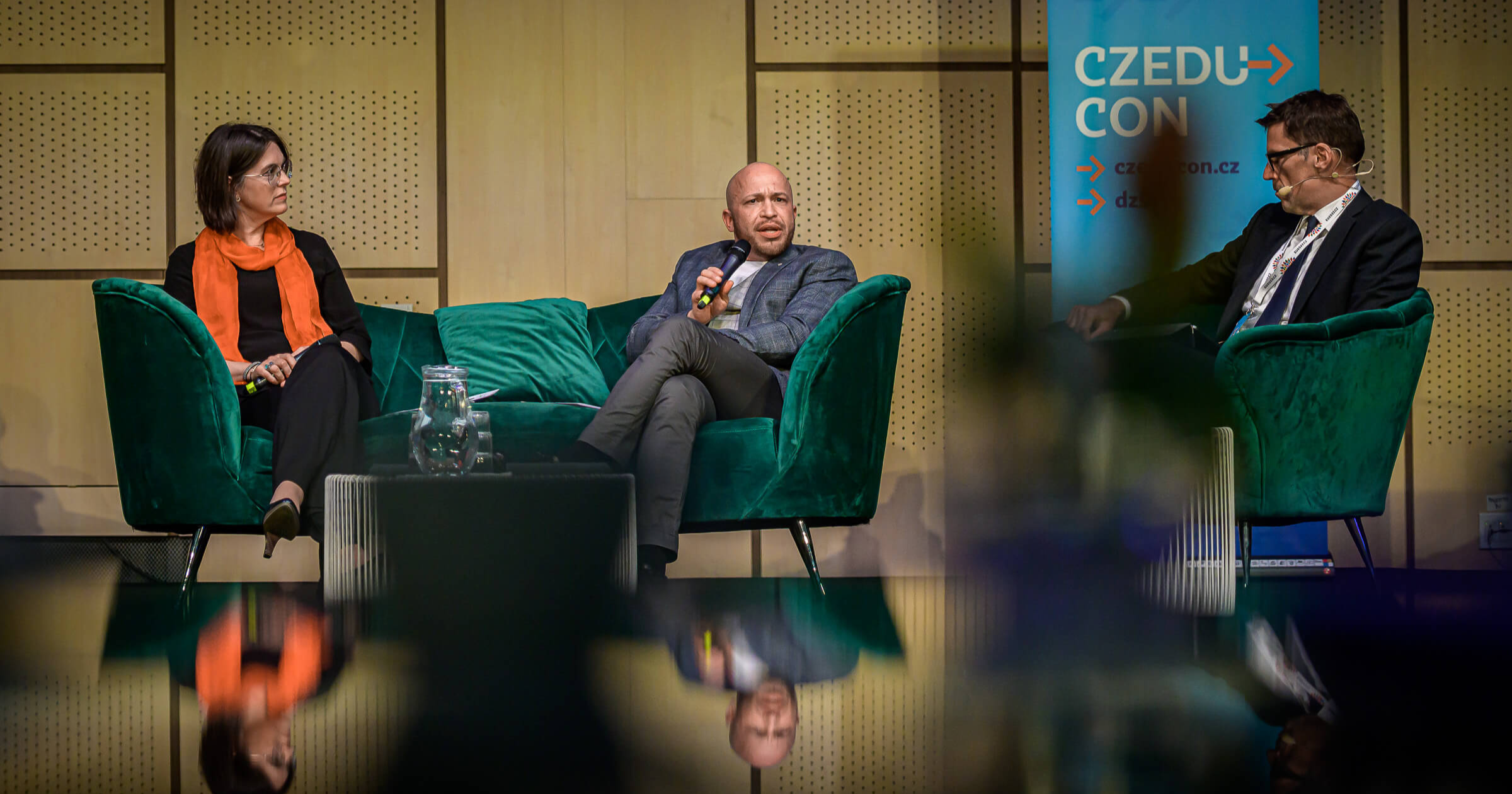
Seventy speakers from seventeen countries, guests from all over the world. The fourth annual international conference on higher education CZEDUCON, which we held in Prague on 21st to 22nd of November in collaboration with the Ministry of Education, Youth and Sports (MŠMT) under the Czech EU Council Presidency, was attended by nearly 500 foreign and domestic experts. Almost 200 participants joined via our online platform to watch the programme live. Top representatives from European universities met with representatives of the European Commission as well as specialists, government officials and experts from the field of education to jointly address the issues of developing and implementing strategies in the field of internationalisation of higher education in Europe. What did this year's CZEDUCON reveal?
European University Alliances as a tool to help in times of crisis
Minister of Education Vladimír Balaš, Director of the Czech National Agency for International Education and Research (DZS) Michal Uhl, Deputy Minister for Higher Education, Science, and Research section at the Ministry of Education, Youth and Sports Radka Wildová and Themis Christophidou, the Director-General for Education, Youth, Sport and Culture of the European Commission Themis Christophiduou agreed in their opening speeches that the internationalisation of higher education is not only crucial for improving the quality of universities, but also essential for their inclusive, sustainable and digital development. One important tool for closer cooperation between universities in the European area is the European University Alliances initiative. The issue of strengthening the European dimension and European values of higher education was one of the most important topics of this year's CZEDUCON.
The topic of European cooperation between higher education institutions was also explored in the opening panel. In the main hall, the Deputy Minister of Education Václav Velčovský, Sophia Eriksson Waterschoot from the Directorate General for Education and Culture of the European Commission, the Rector of Charles University Milena Králíčková and Matteo Vespa, President of the European Students' Union, discussed the topic together. However, the panellists also touched upon current social issues such as the war in Ukraine and the related energy crisis. Both have a real impact on the functioning of universities, and university alliances can significantly help Ukrainian students, teachers and the Ukrainian universities affected by the war. “In addition to helping students and teachers here, we must not forget to help universities in Ukraine. The Eastern Partnership University Cluster initiative which several partners from the European 4EU+ alliance have also joined in addition to Charles University, has proved to be an effective tool. Thanks to it, we can develop close cooperation with Ukrainian universities and help local teachers and students. Without this form of cooperation, such assistance would be more difficult,” said Milena Králíčková pointing out the great importance of alliances for solving current crises. The keynote speakers included Kateřina Šimáčková, a judge at the European Court of Human Rights in Strasbourg. Her speech focused on the importance of European values in contemporary society and the education system, a theme that resonated throughout the conference.
Promising future
How do university alliances work in practice? How can we learn from past experience to improve university cooperation? And what is the future of university internationalisation? These and other questions were the subject of thirty lectures, workshops and panel discussions in the afternoon of the first day and throughout the second day of the conference. In The Jean Monnet Actions and European Values, professors from the Jean Monnet Actions (part of the Erasmus+ programme) addressed the elementary question of why it is important to educate European citizens about European values such as democracy, the rule of law and equality before the law. “Jean Monnet professors should not only explain how European institutions work, they should also ensure that these institutions gain the trust of the citizens,” said Ivo Šlosarčík, professor at the Department of European Studies at Charles University.
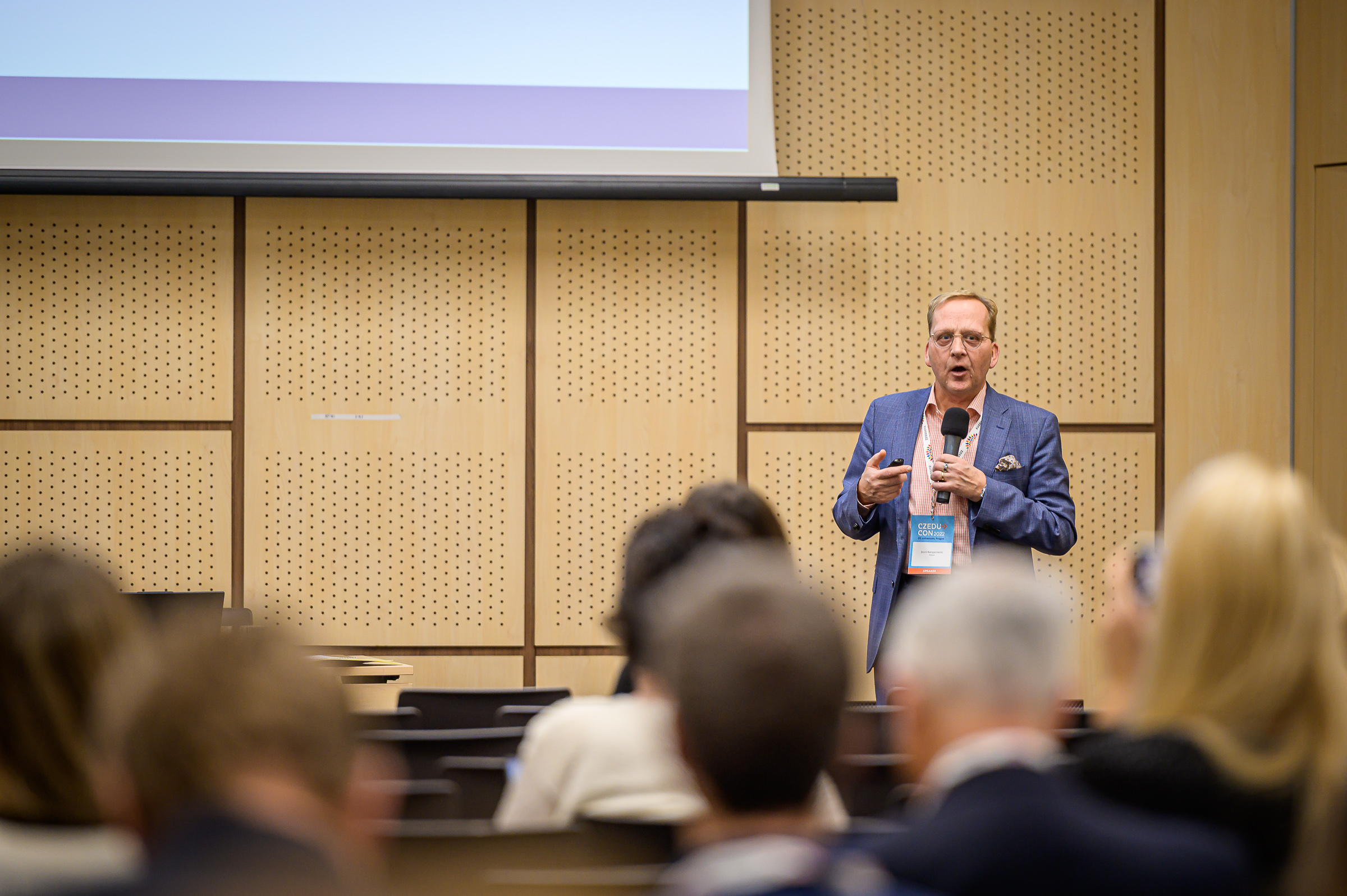
For the participants considering joining the European University Alliances, the presentation of the experiences of the representatives of universities who are already alliances members was particularly inspiring. In the speech European Universites - Trend or Brand or Lab? Christina Raab from the Aurora University Alliance and Violeta Osouchová from the EDUC Alliance shared their experiences of university cooperation so far. In addition to the benefits that membership in the alliances brings to both universities and their students (the most important ones include a well-functioning internationalisation in the home environment), both mentioned the obstacles they have to overcome. "There are nine universities in our alliance, which means nine different academic calendars, nine different university structures, nine different approaches. The big challenge is therefore to overcome these differences, especially in the area of course recognition. But we are gradually succeeding, and the biggest benefits from the alliance are now enjoyed by students in existing alliance courses," Christina Raab from the University of Innsbruck, Austria, described the biggest challenges for the alliances.
But how to prepare students for the future and equip them with the right skills? Finnish expert Jouni Kangasniemi, Programme Director of the Finnish National Agency for Education, addressed this topic in his lecture Building future proof skills for the turbulent times. "We are facing turbulent times in education. We are already experiencing several crises at the same time, be it the corona-crisis (in some countries children have been out of physical education for almost two years), the economic, climate and energy crises, or the war in Ukraine. But education is the answer to these crises. These grim prospects do not make me sceptical. In the past, we have found that it is in difficult times that most innovation has taken place. When we identify the threats, we find solutions. Universities should become a place where knowledge is gathered," Kangasniemi ended his presentation on a positive note.
Did you miss this year’s CZEDUCON or a part of the programme? You will be able to listen to selected programme sessions on the conference website on the programme page.
Take a look at what the conference was like:
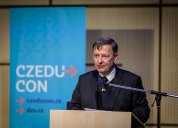
Ministr školství Vladimír Balaš. Foto: Petr Zewlakk Vrabec
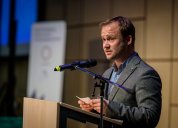
Michal Uhl, ředitel Domu zahraniční spolupráce. Foto: Petr Zewlakk Vrabec
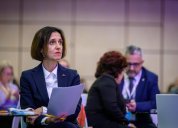
Kateřina Šimáčková, soudkyně Evropského soudu pro lidská práva ve Štrasburku. Foto: Petr Zewlakk Vrabec
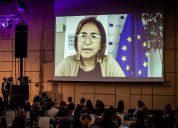
Themis, Christophidou, generální ředitelka pro vzdělávání a kulturu Evropské komise. Foto: Petr Zewlakk Vrabec
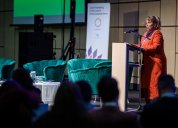
Radka Wildová, náměstkyně pro řízení sekce vysokého školství, vědy a výzkumu MŠMT. Foto: Petr Zewlakk Vrabec

Foto: Petr Zewlakk Vrabec

Foto: Petr Zewlakk Vrabec
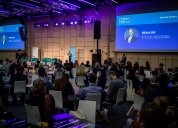
Foto: Petr Zewlakk Vrabec

Foto: Petr Zewlakk Vrabec

Foto: Petr Zewlakk Vrabec

Foto: Petr Zewlakk Vrabec

Foto: Petr Zewlakk Vrabec
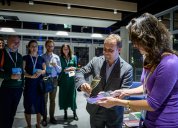
Foto: Petr Zewlakk Vrabec
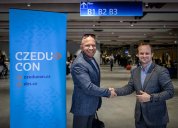
Foto: Petr Zewlakk Vrabec

Foto: Petr Zewlakk Vrabec

Foto: Petr Zewlakk Vrabec

Foto: Petr Zewlakk Vrabec
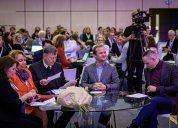
Foto: Petr Zewlakk Vrabec

Foto: Petr Zewlakk Vrabec
